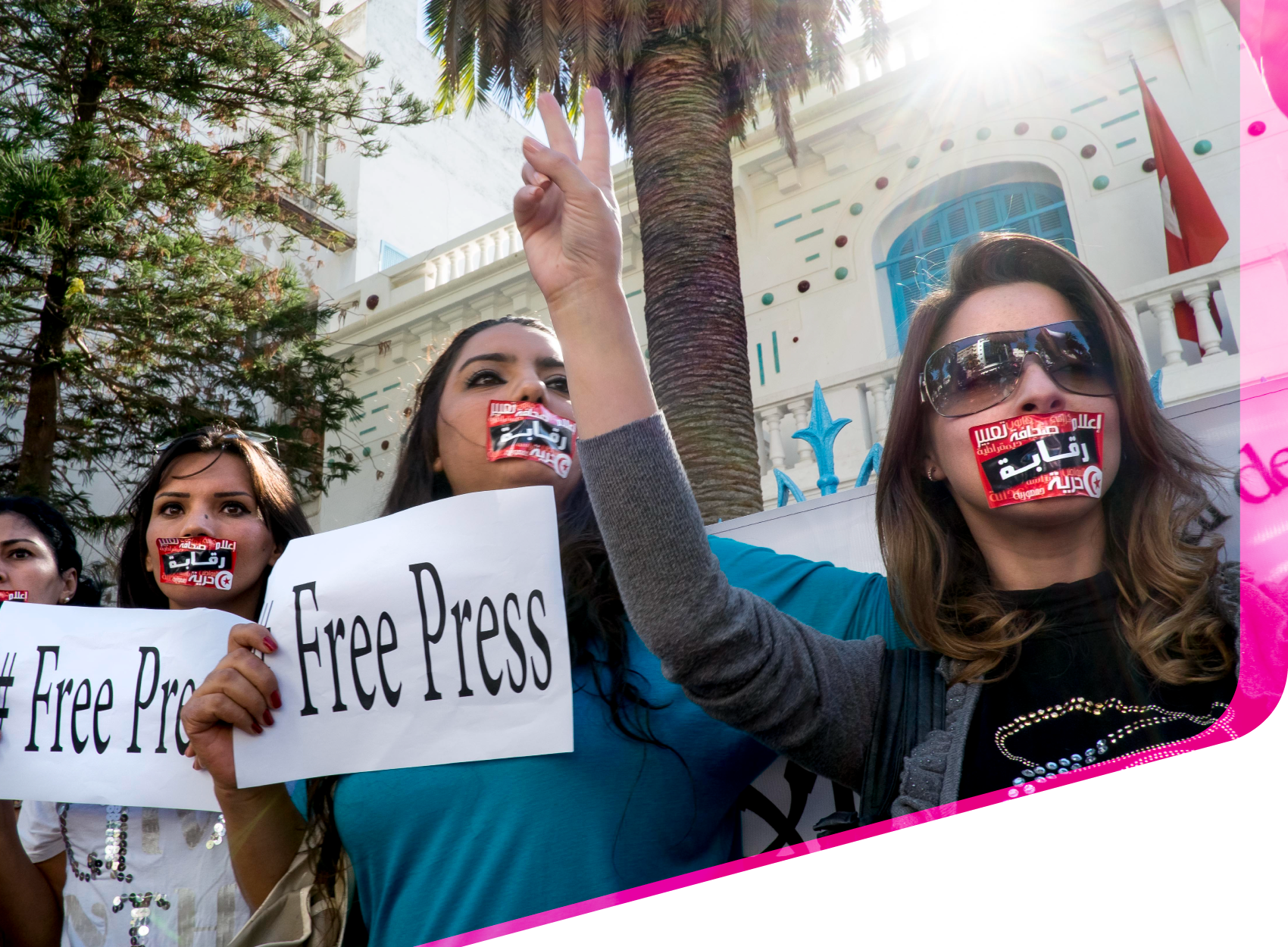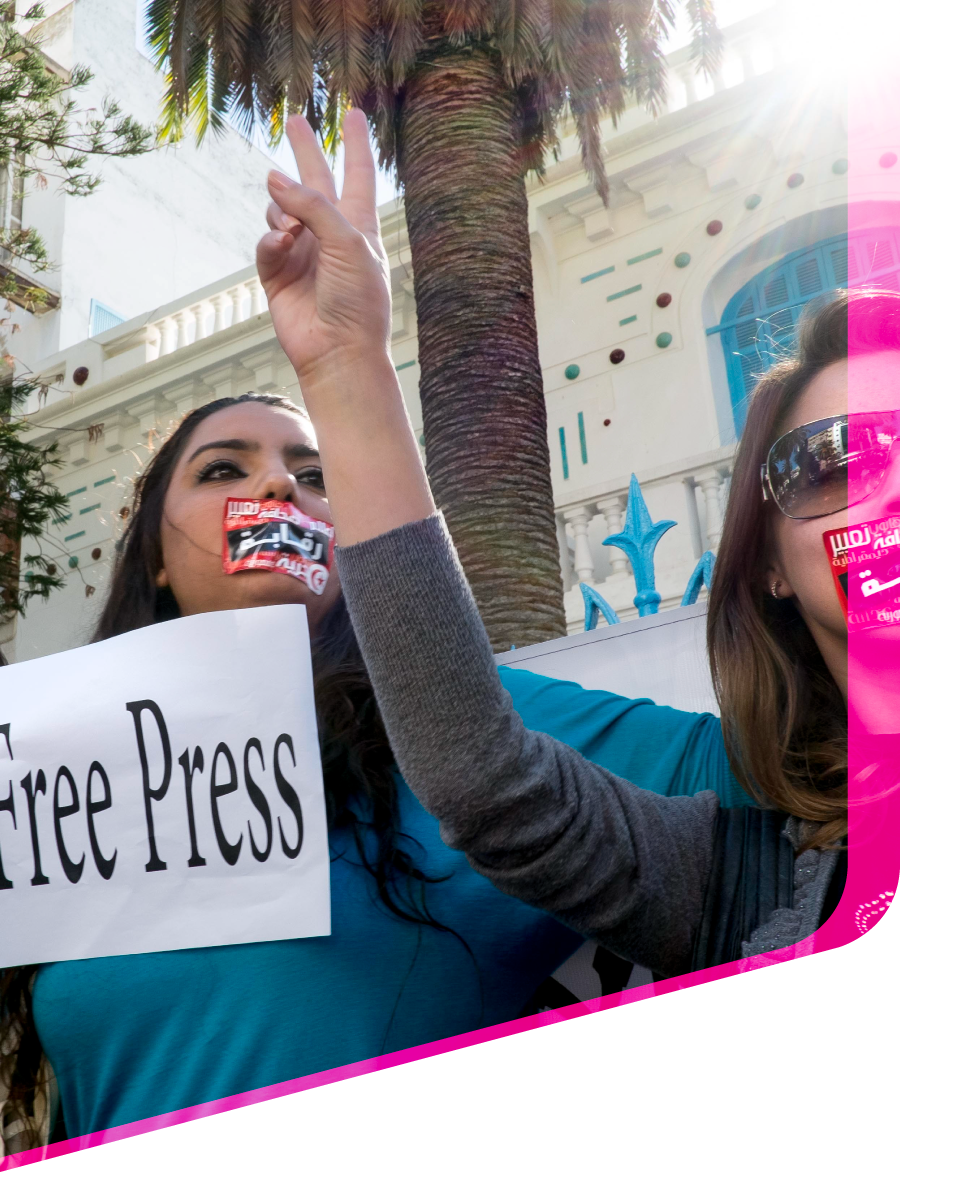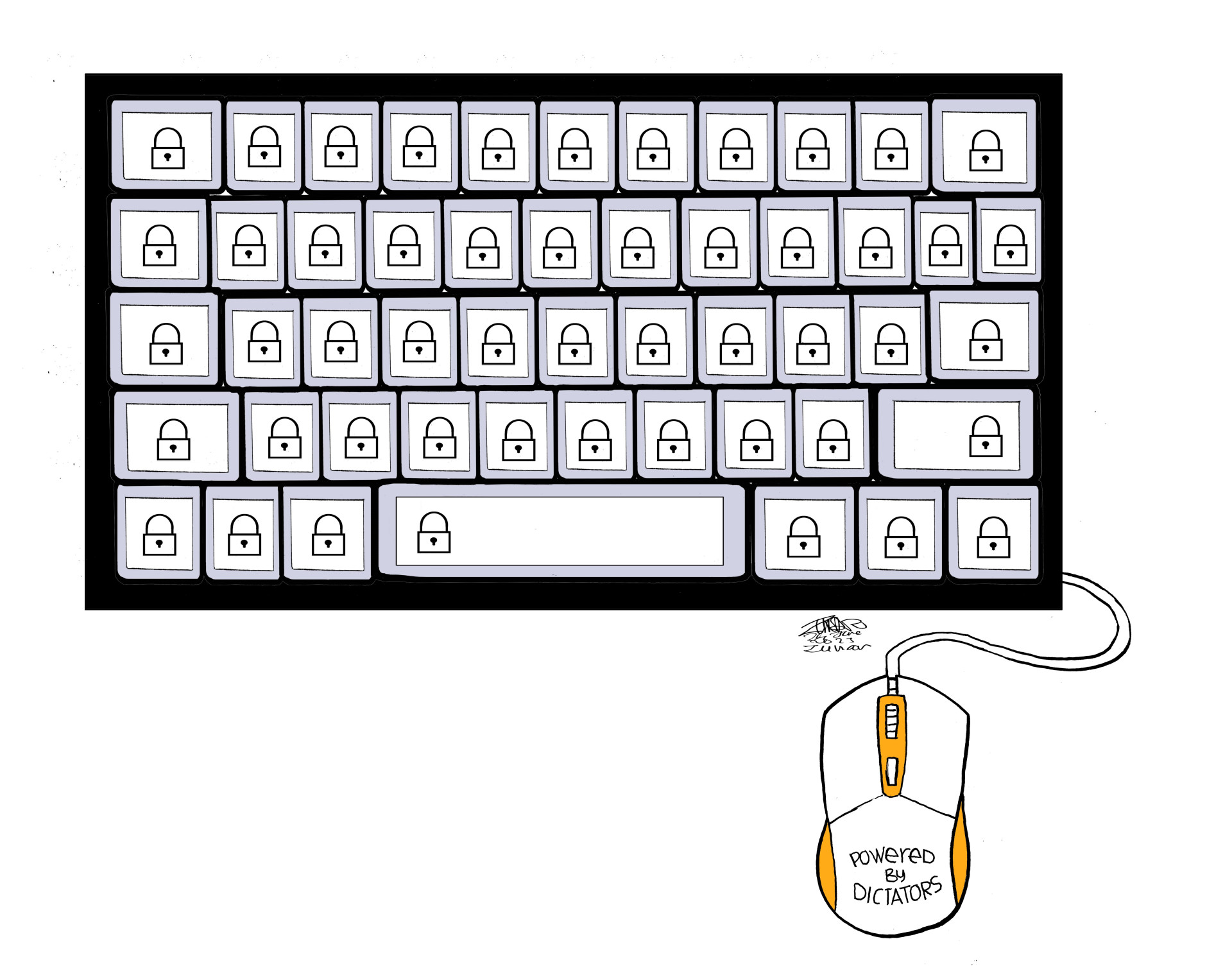
Tunisia
Tunisia
Tunisia
To Speak, or not to Speak?
To Speak, or not to Speak?
To Speak, or not to Speak?

Tunisia
To Speak, or not to Speak?
In the land where the Arab Spring first blossomed, Tunisia stands as a flicker of hope and progress, particularly when it comes to freedom of expression and the press. However, behind the facade of a burgeoning democracy, lies a challenging landscape for human rights journalists. Amidst a backdrop of political complexities, these journalists face a critical conundrum: To Speak, or not to Speak?
Indeed, the Fourth Estate, a cornerstone of democracy, relies on fearless journalism to hold power accountable. Tunisian human rights journalists and activists embody this vital role, navigating treacherous waters as they strive to report human rights abuses. Their search for truth and their efforts to reinforce the principles of the rule of law put them in a delicate situation, between defending the public's right to know and fear of the law trying to silence them.
While Tunisia has made significant progress in building democratic institutions, the legal framework around free speech remains a double-edged sword.
As a result, human rights journalists face the bipolar challenge of operating within a legal system that guarantees freedom of expression, but contains strangling provisions. This tightrope walk forces journalists to carefully design their words, skillfully toeing the line between exercising their rights and risking prosecution, particularly after the issuance of Decree-Law No. 54, supposedly promulgated to fight cybercrime.

Within Tunisia's intricate sociopolitical and legal tapestry, human rights journalists find themselves on a silent battleground. The slightest misstep could lead to prosecution, ranging from fines to 5-year prison sentences. Theever-looming specter of censorship casts a long shadow over their work, prompting self-censorship to protect themselves. Striking a delicate balance between speaking out and self-preservation becomes a constant struggle for these courageous truth-seekers.
courageous truth-seekers. In 2022, Tunisia dropped 21 places in Reporters Without Borders' annual press freedom ranking.
Media and journalists face severe financial difficulties, as well as legal action against individuals for participating in peaceful assembly or criticizing public authority.
Luckily, Tunisia's human rights journalists are not alone in their battle for justice. International and national organizations and unions, as well as fellow journalists, all rally behind them, providing support and solidarity. The collaboration between local and international advocates strengthens the fight for human rights, ensuring that the voices of the silenced are heard worldwide. Through collective action, the resilient human rights champions strive to reshape the narrative, transforming Tunisia into a bastion of press freedom and human rights.
In the country’s complex landscape, human rights journalists face an arduous path filled with obstacles and difficult choices. The decision to speak out or remain silent carries immense weight, intertwining the pursuit of truth with personal safety.
As Tunisia continues to navigate its democratic transition, it is essential to safeguard the crucial role of these brave journalists.
By championing their cause and raising awareness, Tunisia's human rights journalists can be further empowered to challenge oppressive texts and help build a society where truth and justice prevail.
Tunisia
